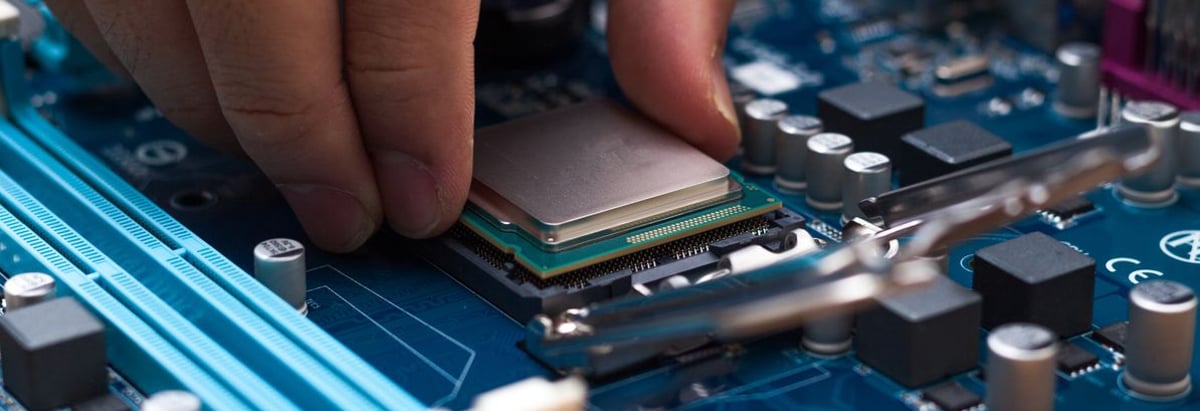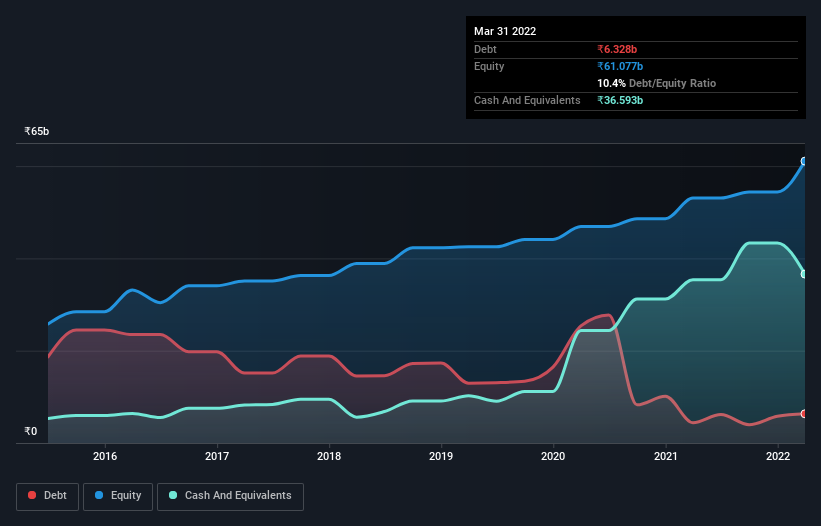- India
- /
- Electronic Equipment and Components
- /
- NSEI:REDINGTON
These 4 Measures Indicate That Redington (India) (NSE:REDINGTON) Is Using Debt Safely

Howard Marks put it nicely when he said that, rather than worrying about share price volatility, 'The possibility of permanent loss is the risk I worry about... and every practical investor I know worries about.' When we think about how risky a company is, we always like to look at its use of debt, since debt overload can lead to ruin. As with many other companies Redington (India) Limited (NSE:REDINGTON) makes use of debt. But should shareholders be worried about its use of debt?
When Is Debt Dangerous?
Debt is a tool to help businesses grow, but if a business is incapable of paying off its lenders, then it exists at their mercy. Ultimately, if the company can't fulfill its legal obligations to repay debt, shareholders could walk away with nothing. However, a more frequent (but still costly) occurrence is where a company must issue shares at bargain-basement prices, permanently diluting shareholders, just to shore up its balance sheet. Having said that, the most common situation is where a company manages its debt reasonably well - and to its own advantage. The first step when considering a company's debt levels is to consider its cash and debt together.
See our latest analysis for Redington (India)
How Much Debt Does Redington (India) Carry?
You can click the graphic below for the historical numbers, but it shows that as of March 2022 Redington (India) had ₹6.33b of debt, an increase on ₹4.39b, over one year. But it also has ₹36.6b in cash to offset that, meaning it has ₹30.3b net cash.

How Strong Is Redington (India)'s Balance Sheet?
The latest balance sheet data shows that Redington (India) had liabilities of ₹119.0b due within a year, and liabilities of ₹4.06b falling due after that. Offsetting this, it had ₹36.6b in cash and ₹86.8b in receivables that were due within 12 months. So its total liabilities are just about perfectly matched by its shorter-term, liquid assets.
Having regard to Redington (India)'s size, it seems that its liquid assets are well balanced with its total liabilities. So while it's hard to imagine that the ₹105.3b company is struggling for cash, we still think it's worth monitoring its balance sheet. Succinctly put, Redington (India) boasts net cash, so it's fair to say it does not have a heavy debt load!
In addition to that, we're happy to report that Redington (India) has boosted its EBIT by 36%, thus reducing the spectre of future debt repayments. The balance sheet is clearly the area to focus on when you are analysing debt. But it is future earnings, more than anything, that will determine Redington (India)'s ability to maintain a healthy balance sheet going forward. So if you're focused on the future you can check out this free report showing analyst profit forecasts.
But our final consideration is also important, because a company cannot pay debt with paper profits; it needs cold hard cash. Redington (India) may have net cash on the balance sheet, but it is still interesting to look at how well the business converts its earnings before interest and tax (EBIT) to free cash flow, because that will influence both its need for, and its capacity to manage debt. Over the last three years, Redington (India) actually produced more free cash flow than EBIT. There's nothing better than incoming cash when it comes to staying in your lenders' good graces.
Summing up
While we empathize with investors who find debt concerning, you should keep in mind that Redington (India) has net cash of ₹30.3b, as well as more liquid assets than liabilities. The cherry on top was that in converted 132% of that EBIT to free cash flow, bringing in ₹8.6b. So is Redington (India)'s debt a risk? It doesn't seem so to us. There's no doubt that we learn most about debt from the balance sheet. But ultimately, every company can contain risks that exist outside of the balance sheet. To that end, you should be aware of the 1 warning sign we've spotted with Redington (India) .
If you're interested in investing in businesses that can grow profits without the burden of debt, then check out this free list of growing businesses that have net cash on the balance sheet.
New: AI Stock Screener & Alerts
Our new AI Stock Screener scans the market every day to uncover opportunities.
• Dividend Powerhouses (3%+ Yield)
• Undervalued Small Caps with Insider Buying
• High growth Tech and AI Companies
Or build your own from over 50 metrics.
Have feedback on this article? Concerned about the content? Get in touch with us directly. Alternatively, email editorial-team (at) simplywallst.com.
This article by Simply Wall St is general in nature. We provide commentary based on historical data and analyst forecasts only using an unbiased methodology and our articles are not intended to be financial advice. It does not constitute a recommendation to buy or sell any stock, and does not take account of your objectives, or your financial situation. We aim to bring you long-term focused analysis driven by fundamental data. Note that our analysis may not factor in the latest price-sensitive company announcements or qualitative material. Simply Wall St has no position in any stocks mentioned.
About NSEI:REDINGTON
Flawless balance sheet, undervalued and pays a dividend.

